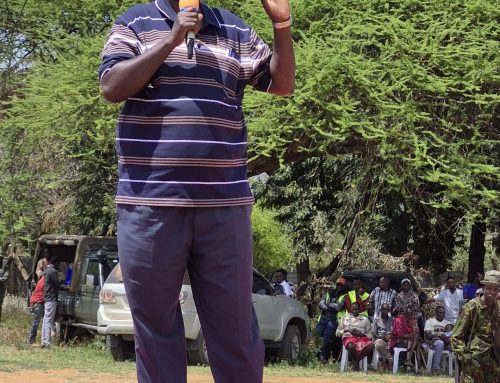The National Syndemic Diseases Control Council, in partnership with the AIDS Health Foundation, the National Council for Persons with Disability, and other stakeholders, convened a summit to address the challenges faced by persons with disabilities in health and HIV interventions. The summit, held at the Kenya Institute of Special Education, brought together over 200 participants, including representatives from diverse communities of people with disabilities, government ministers, departmental agencies, county representatives, the private sector, and civil society organizations.
The two-day event, themed “Advancing a Disability-Inclusive Health and HIV Response,” focused on identifying and addressing barriers that persons with disabilities encounter in accessing HIV and essential health services.
Mr. Harry Kimtai, Principal Secretary for Public Health, reaffirmed the government’s commitment to Universal Health Coverage and emphasized the importance of an inclusive healthcare model. He stated, “Inclusion is not just a word but a principle that must guide our actions.” He highlighted the unique challenges faced by persons with disabilities, including physical and informational barriers, as well as stigma and discrimination. He called for a unified, multi-sectoral approach to provide effective solutions, describing reforms in the health sector aimed at establishing a social health insurance model as critical for creating an equitable and inclusive healthcare system that leaves no one behind.
Dr. Masha, CEO of the National Syndemic Diseases Control Council, commended the community of people with disabilities for their advocacy and efforts to promote realistic and progressive interventions. She illustrated the multifaceted challenges faced by women and girls with disabilities, including increased vulnerability to sexual violence, HIV, sexually transmitted infections, cervical cancer, and other health challenges.
Dr. Samwel Kinyanjui, the AHF Country Director, emphasized the importance of engaging caregivers in interventions, including the integration of mental health services. He also stressed the need for public education on preventive measures for some of disabilities that may occur as a result of interventions such as immunization against preventable diseases and minimizing medical mishaps. The National Council for Persons with Disabilities expressed that the summit marks a significant milestone by providing a platform to address key issues necessary for advancing a disability-inclusive healthcare system in Kenya. As the country aims to end AIDS by 2030, it is essential that no population is left behind.





